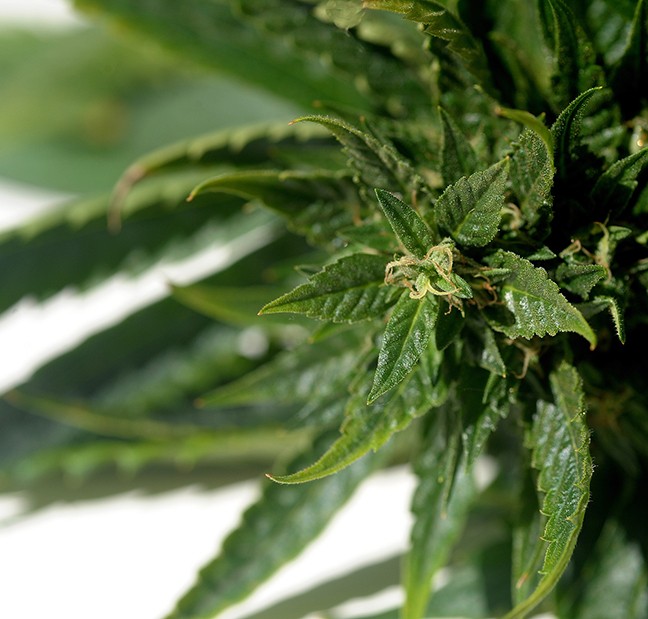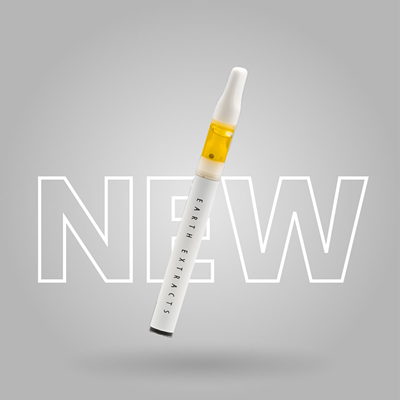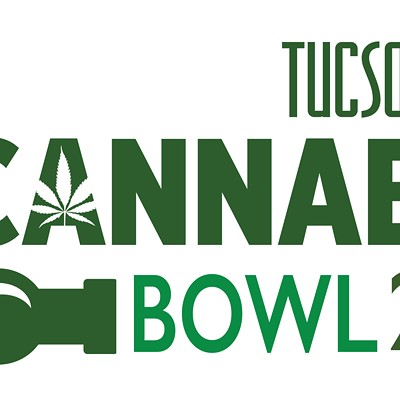After eight years, big changes are coming to Arizona's medical marijuana program because of SB 1494, a new law signed by Arizona Gov. Doug Ducey earlier this month. The 200,000-plus patients, caregivers and dispensary agents in the state now have new rights to safer medicine, and will get a new patient registration system that's only half the cost it was before.
By the way, if you're a chemistry whiz wondering if it's a good time to jump into the state's nascent pot-testing industry, read on.
The law has a lot of moving parts. Here are some the highlights, based on information from the experts at the labs and state Department of Health Services, which runs the medical marijuana program:
One of the most important things to remember right now, DHS officials say, is that your current medical marijuana card is not good for two years because of the law, despite what you may have heard in other news media reports. The agency has received more than a few phone calls from confused patients since Ducey signed the bill on June 10.
"We realized people are going to get in trouble" if they get stopped with marijuana after their card expires, said Colby Bower, DHS assistant director for public health licensing, who also oversees the medical marijuana program. "We don't want a patient to get stopped by [Yavapai County Attorney] Sheila Polk."
If you have a medical marijuana card, check the expiration date on that card. That's a firm date. Patients can make purchases at dispensaries and possess up to 2.5 ounces of marijuana, but only when their cards are valid.
It's only new medical marijuana cards issued after Aug. 27, when the law goes into effect, that will be good for two years. The card fee is currently $150 per year, or $75 for SNAP recipients. So, since the fees will remain the same to obtain a card, the new law's two-year provision cuts those costs in half.
That'll be a relief for about 200,000 people, and it'll put the fee more in line with what the DHS medical marijuana program needs to operate, which is about $17 million a year. Up until now, the $150 annual fee has brought in too much revenue. The money sits in a fund, barely used because Republican lawmakers didn't want to appear to be helping the program. The fund balance will top $80 million in the state's fiscal year 2020, according to the latest state budget.
The two-year rule has another impact that could prove painful for some of the state's naturopaths, who have been the most common kind of physician to write the recommendations for marijuana that are needed to obtain the state card. Suddenly, these docs and certification companies will be out of a lot of revenue, despite the important role they played in building up the patient rolls.
Dr. Elaine Burns of the Southwest Medical Marijuana Evaluation Center is staying positive. Sure, some of the naturopaths who count on medical marijuana recommendations could be pushed out of business, but most will survive, she predicted. At her center, about half the patients are new, the other half returning, meaning "it's a 50 percent hit on 50 percent." But many Arizonans likely have been shut out of the program because of the cost, she pointed out, and now they'll be able to afford it.
"I'm excited and pleased and think it will actually increase patients and access to medicine," she said.
Burns added that she's expecting business to take a slight hit this July and August, as many patients put off the decision to renew their cards until after Aug. 27, when the two-year provision kicks in. She surmised that the effect could mean fewer sales for dispensaries those months, too.
Oh, and those cards? They're going away, starting this year.
The law mandates that by Dec. 1, the DHS will begin offering an option for electronic cards. One reason is that DHS needs to "get out of the printing game," Bower said.
With the massive growth in the Arizona program, the DHS now produces 1,000 cards each day. But e-cards will make life easier on patients, who won't need to remember to carry a card. Dispensaries will enjoy a few extra bucks with the elimination of the two- to three-day waiting period to get registered, because patients will be approved to make purchases sooner.
DHS officials said it's unclear exactly how that will work at this time, but they are developing a plan. Possibly, patients would be able to pull up their e-card from a DHS app on their smartphones.
"We know the solutions exist," DHS spokesman Chris Minnick said. "It's just a matter of finding which one works best for the program."
SB 1494 is largely an instruction manual on how to set up a state-certified marijuana-testing industry, which Arizona has never had. Incredibly, the law voters passed in 2010 to create the program, unlike similar laws in other states, made no provisions to ensure the medicine contained no contaminants. State lawmakers subsequently failed over the years to protect patients with a reasonable testing requirement, until now.
By the time the law takes effect on Aug. 27, the state will have begun certifying cannabis-testing labs and lab assistants, requiring them to adopt "basic minimum standards," Bower said.
The state has about six or seven cannabis-testing labs now. On Aug. 27, something good will happen to their employees: Their job duties will become legal under state law (though still illegal federally). SB 1494 allows the labs and workers handling cannabis samples to do so legally. They've been winging it until now, concluding correctly they were unlikely to face a raid or prosecution for checking medical marijuana for mold, pesticide residue or potency.
Testing must begin by Nov. 1, 2020. After that, patients can demand to see the test results from any particular batch of cannabis products. Companies flagged for repeated violations of various standards will be fined. Tests of samples of all the medical marijuana, concentrates, gummies, and other products sold at dispensaries will be governed by new standards and rules.
Those standards and rules have yet to be written. First, a medical marijuana testing advisory council will be assembled to help the DHS do that, and to oversee the testing businesses.
The council will include asssociation directors; dispensary and cultivation experts; a lab owner; owners of concentrates and edibles businesses; a scientist; a patient; a caregiver; a representative of the Department of Public Safety; a doctor who specializes in treating substance use disorders and "Any other members" deemed necessary.
Applications for the members have already gone out, Bower said.
The DHS has until December 31, 2019, to submit a report detailing the council's "finding and recommendations for testing medical marijuana."
"A lot of big decisions have to be made," Bower said.
Questions the rules will address include what to do with marijuana batches that test too high for contaminants. The DHS will spell out the dispensary's responsibilities at that point, figuring out whether to pull products from shelves, burn bales, or allow some to be processed for THC extraction. The DHS will also want to make sure bad product isn't being "sold out the back door," Bower said.
The state will need to learn the best practices for testing gummy bears sprayed with hash oil, for example, and how much THC sticks to a candy wrapper.
Most likely, patients will want to see testing occurring at various phases of the cannabis cycle, from buds to concentrates to edibles made from concentrates, he said, adding that results will come in from the independent labs to the DHS, then given to the dispensaries.
Money to pay for the state's end of the testing program will come from the marijuana fund.
The optional lab tests already occurring in Arizona typically are done for marketing purposes. Customers want to know what percentage of THC is in their vape cartridges or buds, or whether topicals marked as having 30 or 50 percent CBD really contain such quantities.
Dispensary operators have been policing themselves with the help of several independent labs. Except for occasional reports of mold, no reported problems have occurred. That is, Arizona medical marijuana must not be too dangerous. But no one knows for certain what's in it except for the labs and their clients, the dispensaries.
A testing bill almost made it out of the Legislature last year, but it was killed by political fighting. A new push for a testing bill began just before the opening of the 2019 legislative session, spearheaded by those with arguably the most to directly gain: testing labs.
George Griffeth has worked as a lawyer for most of his life, his LinkedIn page shows, including recently as in-house counsel for an air ambulance company. But now, he's taking a career detour.
In late 2017, Griffeth started Level One Labs in Scottsdale; the company tested its first sample on Dec. 22, 2018, he told Phoenix New Times. About the same time, Griffeth began the Arizona Cannabis Laboratory Association. By March, the association had another member: C4 Laboratories of Mesa. Soon, it had Delta Verde Laboratory in Phoenix and other "pioneers" of the local testing scene.
"We hired a lobbyist, and that's how" the law passed, Griffeth said on Wednesday, praising the bipartisan effort it took to achieve the required three-quarter-majority approval.
The goal is to reach the ISO 17025 standard for analytic testing labs, which aren't necessarily cannabis-related "but can fit into" the mission of testing cannabis, Griffeth said. The DHS will later determine the size of "grow lots" for raw plants to be tested. Oregon, which has had recreational marijuana since 2014, tests samples in 5 percent of cultivated areas, he said.
Other tests will ensure concentrates are fully degassed of any solvents, like butane, that went into manufacturing them. Adding concentrates to edibles, which is how most infused edibles are made, would result in another test, Griffeth said.
Arizona's patients smoked, vaped, ate or otherwise consumed 61 tons of cannabis products last year. That figure's likely to keep growing each year, and it's also possible that voters may expand the market by passing a recreational marijuana law in 2020.
How many more labs will be needed in Arizona to test samples is unknown. "The labs here will grow," Griffeth said on Wednesday. "All the labs are ramping up. I've been on the phone all day ordering equipment."
Labs are snapping up items like the LC Triple Quad mass spectrometer and an inductively coupled plasma mass spectrometry machine used to test for heavy metals which "uses more energy than your entire lab," he said.
Microbial testing includes looking at a sample's DNA, so "there's no waiting for shit to grow," Griffeth said. "What used to take a week now takes a day."
Other lab owners see the passage of SB 1494 as having little, if any, downside.
"This is what we've been waiting for," said Ryan Treacy, CEO of C4 Laboratories. "From our perspective ... it was a long time coming. It's kind of unfortunate we were the last state to implement this." ■
This article originally appeared in Phoenix News Times. New Times news editor Ray Stern has worked as a newspaper reporter in Arizona for more than two decades. He's won many awards for his reporting, including the Arizona Press Club's Don Bolles Award for Investigative Journalism.










